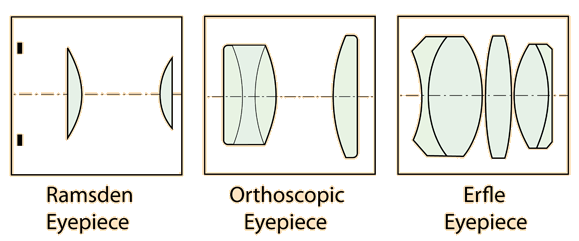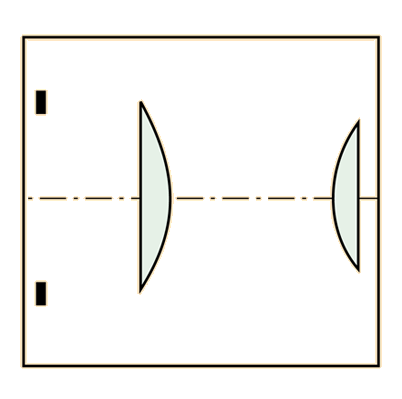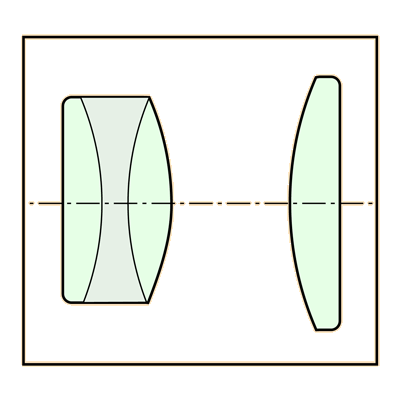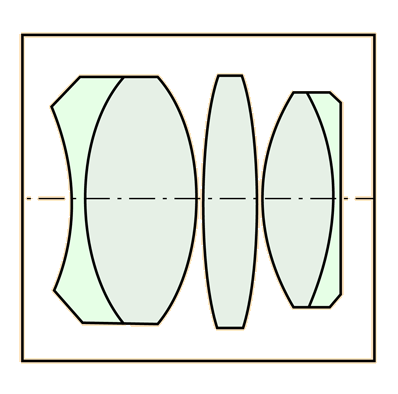Ramsden Eyepiece
In the Ramsden eyepiece, the two lenses are made of
the same kind of glass, e.g., spectacle crown. The lenses
are of equal focal length and their separation is equal to
the focal length. The field lens coincides with the first
principal plane, which is convenient for the placing of
crosshairs or reticules, but inconvenient in that it
highlights any dust on the lens.
This eyepiece is effective in reducing chromatic
aberration , doing a better job with longitudional
achromatism than with lateral. Its approach to minimizing chromatic aberration is based on spacing the lens pair so that dependence upon the index of refraction is minimized. It is quite effective in reducing spherical aberration and distortion, and removes the problem of coma.
In standard use, the objective lens will form an image at the first surface of the field lens.
|
Index
Lens concepts
"Reference
Meyer-Arendt
Ch 9, 4th Ed. |





